
The act of writing is already a deeply personal endeavor. We sit at our desks or on our couches, at kitchen tables or back patios, and we pour out of us the stories we hope will resonate with readers. For young readers, they're often looking for answers to a world in which they're actively becoming themselves.
Being a kid, in many ways, is a mystery. How do you interpret how it feels to grow up, the changing dynamics within one's own family, the fear that accompanies adolescence and the unknown? For middle-grade authors, gaining a readers' trust is paramount. But how do you do that when the story's purpose is a mystery even to the main character? How do you introduce an origin of cultural significance? Nasugraq Rainey Hopson knows this first-hand and tackles it head-on with her latest middle-grade novel, combining fiction with mythology to broaden her readers' understanding of the world and help them through the ever-treacherous waters of growing up.
Hopson is a tribally enrolled Iñupiaq author and illustrator, born and raised in Alaska. She studied studio art at Cal Poly Humboldt, as well as philosophy and marine biology. With several careers to her name, including documentarian and schoolteacher, her focus has always been on reclaiming Indigenous culture and creativity. This she succeeds at in Eagle Drums.
This story is from the September - October 2023 edition of Writer’s Digest.
Start your 7-day Magzter GOLD free trial to access thousands of curated premium stories, and 9,000+ magazines and newspapers.
Already a subscriber ? Sign In
This story is from the September - October 2023 edition of Writer’s Digest.
Start your 7-day Magzter GOLD free trial to access thousands of curated premium stories, and 9,000+ magazines and newspapers.
Already a subscriber? Sign In

What Is Your Story Question?
Revision and editing advice to take your first draft to the next level.
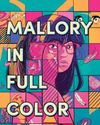
Writing for the People We Hope to Become
Elisa Stone Leahy's new middle-grade novel, Mallory in Full Color, tackles the in-between moments of adolescence, when who we are and who we want to become collide.
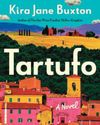
Creating Community
Whether hot off the presses or on the shelves for years, a good book is worth talking about.

Pat Barker
The Booker Prize-winning author of Regeneration shares the role characters play in developing novel ideas and explains what appeals to her about reimagining mythology.

How to Write in Different Genres
Emiko Jean and Yulin Kuang share tips and strategies for how they successfully write in different genres and mediums.

The Shortest Distance Between Two Points
Ten tips for writing a novel with 100-word stories.

Mayfly Marketing
How to sell your novel in a short-attention-span world.
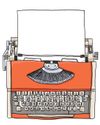
"You'll be a great essay".
How to write six types of personal essays by finding the funny in your life.
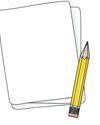
The Idea Factory
Tired of staring at an empty screen? Unlock your inner fiction generator with these surprising inspiration techniques.
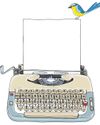
Seinfeld Was Right: That's a Story
Use mundane moments from everyday life to create stories that pack a punch.